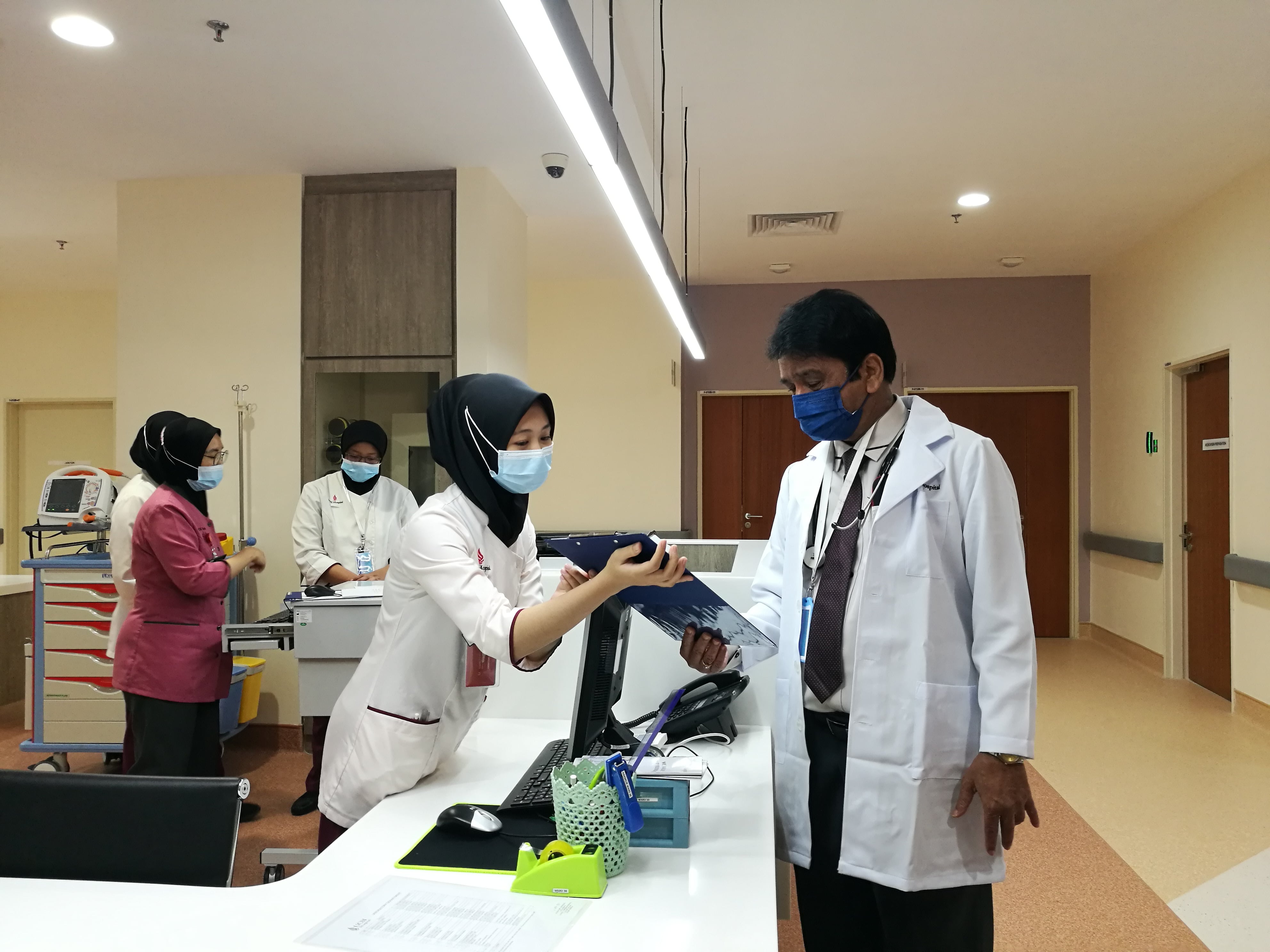

Treating patients is a collaborative effort. No healthcare professional can take care of the patients’ welfare on his or her own. In this regard, the specialists in a hospital work together to provide the necessary treatment and care.
Similarly, the role of the internal medicine specialist (internist) is just as vital. UCSI Hospital's Internist, Dr Nagesh Namedeo Chodankar, explained his role in the hospital and the common infectious diseases among Malaysians.
Nagesh began his 40-year medical career in Mumbai, India, where he later served as a consultant doctor in various hospitals. His career has brought him from India to Saudi Arabia and Malaysia. He also worked as an associate professor at Universiti Malaysia Sabah before assuming his role as an internist at UCSI Hospital.
When he does not teach or look after his patients, Dr Nagesh spends time with his family and talks about cricket.
According to Dr Nagesh, an internist investigates the causes of infectious diseases and determines on the types of treatment for the cases.
'The internal medicine branch involved the diagnosis and management of all pathologies of all organs of the body using different methods of investigation. We also take on infectious diseases by carrying out the necessary investigations and treatments.
"As an internist, I work with my team to investigate the causes of viral diseases like tuberculosis, diabetes, kidney disease, and heart disease. After studying the causes, we must decide what kinds of treatments are appropriate for these diseases, depending on the stage and severity," said Dr Nagesh.
He explained that his department deals with patients at the early stages of an infectious disease. However, he noted that his department will refer patients to other specialists if they are in an advanced and severe state.
"For example, we treat patients in the early stages of diabetes. If a patient is at a severe stage, we must refer him or her to a nephrologist, a specialist in kidney care and treatment for kidney diseases.
"Similarly, we can treat patients with a simple stroke via minor or non-invasive treatments. However, we will not hesitate to pass a patient to a neurosurgeon if he or she has a haemorrhagic stroke.
"From here, you can see healthcare at UCSI Hospital is an integrated system. We work together for the patients' health," he said.
Vaccination is critical to our health, even prior to the COVID-19 pandemic. However, some people express concerns about vaccines and their safety.
Dr Nagesh explained the production and safety of the vaccine.
Normally, a scientist uses the dead or inactive version of the virus to develop a vaccine. This method is often used to produce vaccines against Hepatitis A, Polio, and Influenza. Then, there is the Covid-19 mRNA vaccine, which contains the blueprint of the SARS-CoV-2 virus. Both kinds of vaccines enable the body to develop an immune system to protect itself from future infections.
"As the vaccines must meet the Ministry of Health's safety standards, the public can be rest assured that the vaccines are safe to be used. Of course, some people may develop allergic reactions to vaccines, but the cases of vaccines are few and far between,' he commented.
According to Dr Nagesh, Malaysians are predisposed to three common diseases: hypertension, diabetes, and kidney disease. He added that Malaysians are susceptible to these diseases due to the culture of eating out.
"Malaysians enjoy eating outdoors more than preparing meals because it is convenient. This habit is so prominent among the working class as they are always in a rush for their next assignments and meetings. As a result, they pay less attention to the amount of salt and sugar they consume each day," He commented.
He said that young people now are also prone to getting diseases like diabetes and heart attack due to their current diet.
"We often believe that you would not have heart attacks and other infectious diseases until you are much older. However, I have seen cases of people in their mid-20s having a heart attack. There are even young people showing visible signs of diabetes before reaching 40 years of age.
"I hope you can see that now infectious diseases do not discriminate against anyone," He added.
With this information in mind, Dr Nagesh advised Malaysian to pay more attention to their diet through these simple steps.
"I would advise you all to start preparing your meals at home. I know it is a difficult task as we have a busy schedule. However, your health needs to be a priority.
"By preparing your meals at home, you can control the amount of salt and seasonings in your food. Additionally, I would also advise you to consider using wheat flour over white flour or what we call Maida. Maida has a high glycaemic index, which is often linked to Type 2 Diabetes," He concluded.

We will revert to you asap
UCSI Hospital Enquiry
Hey there 👋
I'm here to help, so let me know what's up and I'll be happy to find a solution 🤓